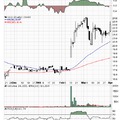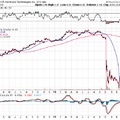Idei naptár: http://www.marketwatch.com/optionscenter/calendar
When is options expiration day? Equity and index options expire after the close of trading on the third Friday of each month. The week leading up to options expiration then begins on the preceding Monday.
As the graph shows, for the last 21 years, the week leading up to options expiration (red) has been consistently bullish and the weeks before and after bearish in terms of both returns and percentage positive.
If the week leading up to expiration week is actually the 2nd week before expiration week then that would mean that week is the first week of the month. Based upon my studies the first week of the month on a historic basis has been bullish compared to the other weeks of the month. In my mind this doesn’t have anything to do with options expiration but rather that stocks tend to go up in the first few days of the month due to payroll deductions going to mutual funds, 401(k)s and pensions.
Perhaps market makers and hedge funds that sell large volumes of call options that don’t wish to risk major changes prior to expiration, yet do not have the liquidity to buy the options back . The obvious solution would be to buy the underlying stocks to hedge their risks. The counterargument would ask why the same activity does not occur with put options—which would neutralize the effect. Well, ostensibly many of the put sellers are large pension funds, retail investors, and to some extent mutual funds. Selling puts is an alternative to buying the stock, or a means of buying the stock at a price that they feel is desirable.They do not participate in call selling nearly as much because of the unlimited risk factor. Hence the bias prior to expiration week would rest with call sellers, who buy stocks on balance to hedge and drive the market up.
The study, "Stock Price Clustering on Option Expiration Dates," appeared last October in The Journal of Financial Economics. The researchers focused on unusual trading patterns of stocks when options on them were expiring. They found an increased likelihood that a stock would close on the options expiration day at or very near the strike price of one of its expiring options. On all days other than the expiration date, the researchers found, this happens about 10.5 percent of the time. But on option expiration days, this frequency jumps a full percentage point, to around 11.5 percent. That suggests that option strike prices are acting like magnets, drawing stock prices toward them. Could the cause of this clustering have nothing to do with options expiration? The researchers believe not, since they were unable to find a similar pattern among stocks for which no options exist. They also examined what happened to these stocks when and if options began to be traded on them. They found that clustering generally appeared almost immediately in these stocks' trading patterns on expiration days.
A bejegyzés trackback címe:
Kommentek:
A hozzászólások a vonatkozó jogszabályok értelmében felhasználói tartalomnak minősülnek, értük a szolgáltatás technikai üzemeltetője semmilyen felelősséget nem vállal, azokat nem ellenőrzi. Kifogás esetén forduljon a blog szerkesztőjéhez. Részletek a Felhasználási feltételekben és az adatvédelmi tájékoztatóban.

